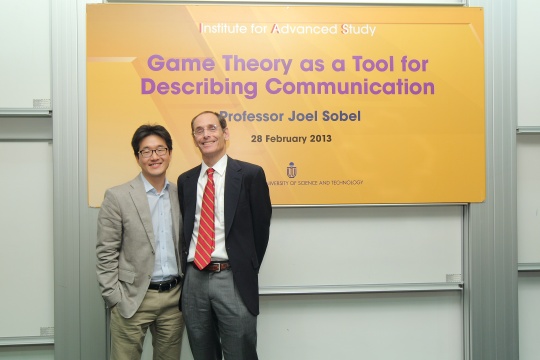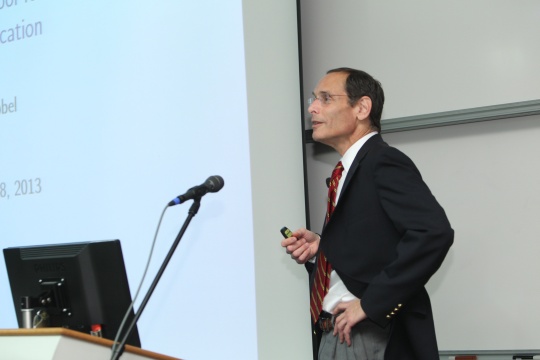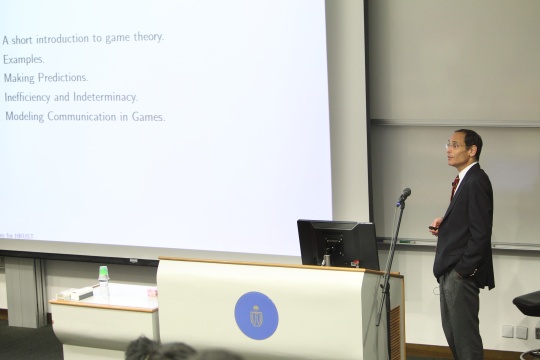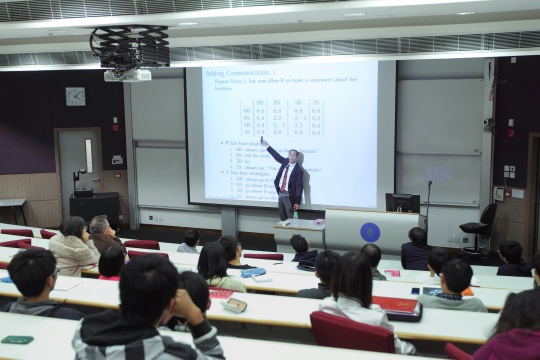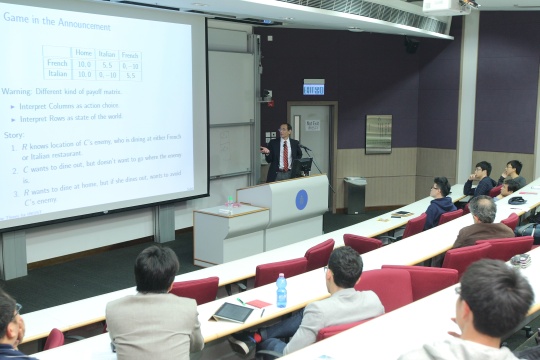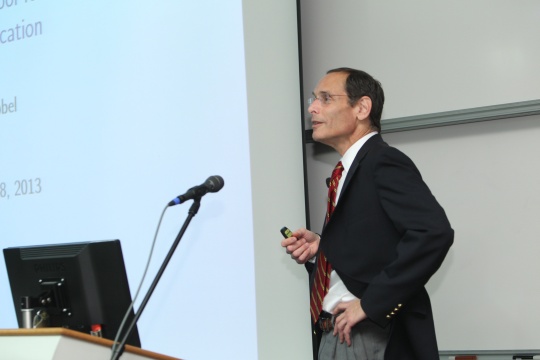Game Theory as a Tool for Describing Communication
Abstract
This lecture begins with a brief introduction to game theory and then discusses how game theory can be used to describe how natural language can facilitate social and economic interaction. The approach provides insight into when communication is effective and why people may be unable to learn from others. It examines different causes of communication failure, in particular contrasting the effect of conflict of interest with the possibility that information is simply too difficult to describe. The talk suggests ways in which cultural barriers to communication may be introduced into formal models.
About the speaker
Prof. Joel Sobel received his PhD in Applied Mathematics from the University of California at Berkeley in 1978. He has been Visiting Professor / Fellow at the Hebrew University of Jerusalem, Universitat Autònoma de Barcelona, Universitè Paris I, Stanford University, University of Wisconsin-Madison, University of California at Berkeley, California Institute of Technology and the University of Oxford. He joined the University of California at San Diego in 1978 and is currently Professor of Economics.
Prof. Sobel's current research interests focus on microeconomic theory and game theory. He is best known for his pioneering innovations on signaling and strategic information transmission.
Prof. Sobel is a co-editor of Econometrica and was a co-editor of American Economic Review for 2009-2010. He was elected Fellow of the Econometric Society in 1990 and of the American Academy of Arts and Sciences in 2010. He has also been a Charter Member of Game Theory Society since 1998 and Charter Fellow at the Economic Theory Society since 2011. He was elected to the Council of the Game Theory Society in 2006.

